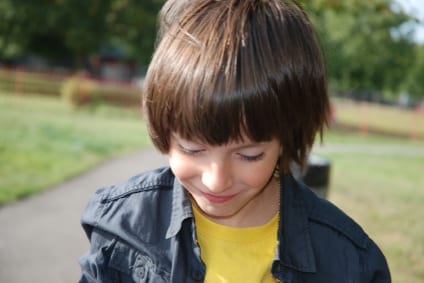 What is the “shy newbie?” This is a term I created. To me, it means the individual who won’t talk about autism yet they most likely have someone in their life on the autism spectrum.
What is the “shy newbie?” This is a term I created. To me, it means the individual who won’t talk about autism yet they most likely have someone in their life on the autism spectrum.
To break it down further I’ll look at each word. Shy, of course, means a person who doesn’t like to talk. To me, “newbie” can mean two things – either someone who is just starting out into the world of autism, or they’re in the world of autism but they refuse to acknowledge that fact to the outside world. For whatever reason, they’ve adopted a policy of never mentioning autism.
Why don’t they want to discuss it?
Some people feel uncomfortable discussing their personal lives. Some of it may be cultural or simply the matter of being uncomfortable.
Sadly, they may not want to talk about autism because they may feel embarrassed. On some level, there are people out there who had dreams for their unborn children, then at some point those dreams may have been shattered and talking about that hurts.
I’m not a big fan of these reasons for not discussing autism openly, but they do exist.
What about those people? What can you do about them?
Nothing.
Everyone is allowed their privacy. You can’t force someone to talk about something that makes them feel uncomfortable. What if I don’t even know the person? Who am I to get mad at an unknown person for the way they choose to conduct their life?
With that being said, I discuss autism in front of my autistic son without a second thought. He doesn’t walk around with a sign on his back that says, “I have autism,” but I don’t go out of my way to keep quiet just because he’s around.
I’ll talk to anyone about autism. My son is my favorite thing in the world to talk about and I’m not shy about it. There are other topics that I may avoid (political discussions, for example), but over the years I have become more comfortable discussing autism.
On a side note, the only issue we have about discussing autism with our son around is that he has yet to acknowledge that he is the one with autism. On some level, perhaps he has, but I’m not one hundred percent sure.
We’re hoping that someday he comes to us with questions like, “Is that me you’ve been talking about and why do I have autism?” My husband and I are ready for that day.
Talking to people about autism is simply comfortable for me. But, it’s not so for everyone.
What concerns me about the shy newbie?
The shy newbie that concerns me most are the ones who are not getting services for their child.
Sometimes they are doing this because they are in denial. I see it as someone in their life needs help and, for whatever reasons, they refuse to acknowledge it.
I have discussed the problem of denial in a past blog, but let me reiterate; you are NOT helping your child by succumbing to your fears. You are doing the opposite. You are wasting valuable developmental time. It is the time when your child could be receiving services but instead isn’t all because you live in fear of a diagnosis.
Turns out, it may not even be a diagnosis of autism. Your child may not evaluate on the autism spectrum at all or may simply have a developmental delay.
But, how would you know if you’re living in fear?
There is a very good reason why pushing aside your fear is the right thing to do…because it is about your child and not you. You are only hurting your child.
I believe some of it has to do with people who are afraid of asking the question, “Is there something wrong with my child?”
They believe in idioms like they will “grow out of it” or “boys develop late.” It seems they have tons of excuses.
What’s worse is that they may have asked one person (let’s say their child’s pediatrician) and that one person said their child is fine and they’ve accepted that one opinion. (I have also ranted in the past about pediatricians and their failures to help support autism evaluations.)
As a result, kids who could benefit from services are not getting them and evaluations and services are happening years later than they could be happening. As a result, the average age of autism diagnosis is FIVE.
As long as the “shy newbie” is still around, that number is not going to go down anytime soon. It’s too bad. Their kids could really use the help. I would like nothing more than to find these shy newbies and counsel them. Or shake them and say, “help your kid.” Unfortunately, I think most of them have to do things on their own time.
To Find Kimberly Kaplan:
www.kimberlykaplan.com
www.smashwords.com or Amazon Kindle ebook “A Parents’ Guide to Early Autism Intervention”
Twitter: @tipsautismmom





